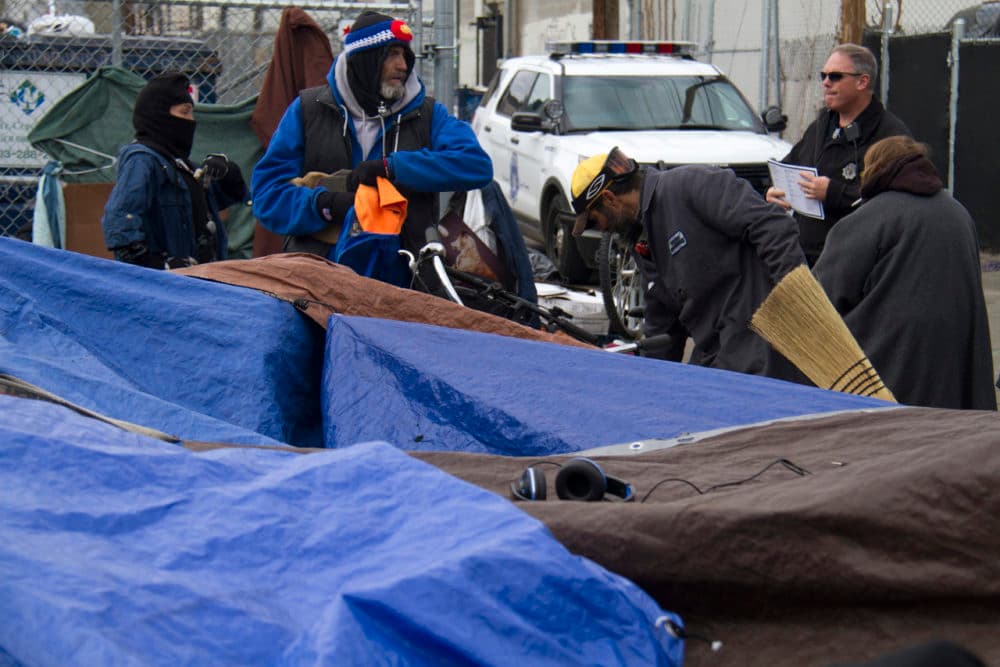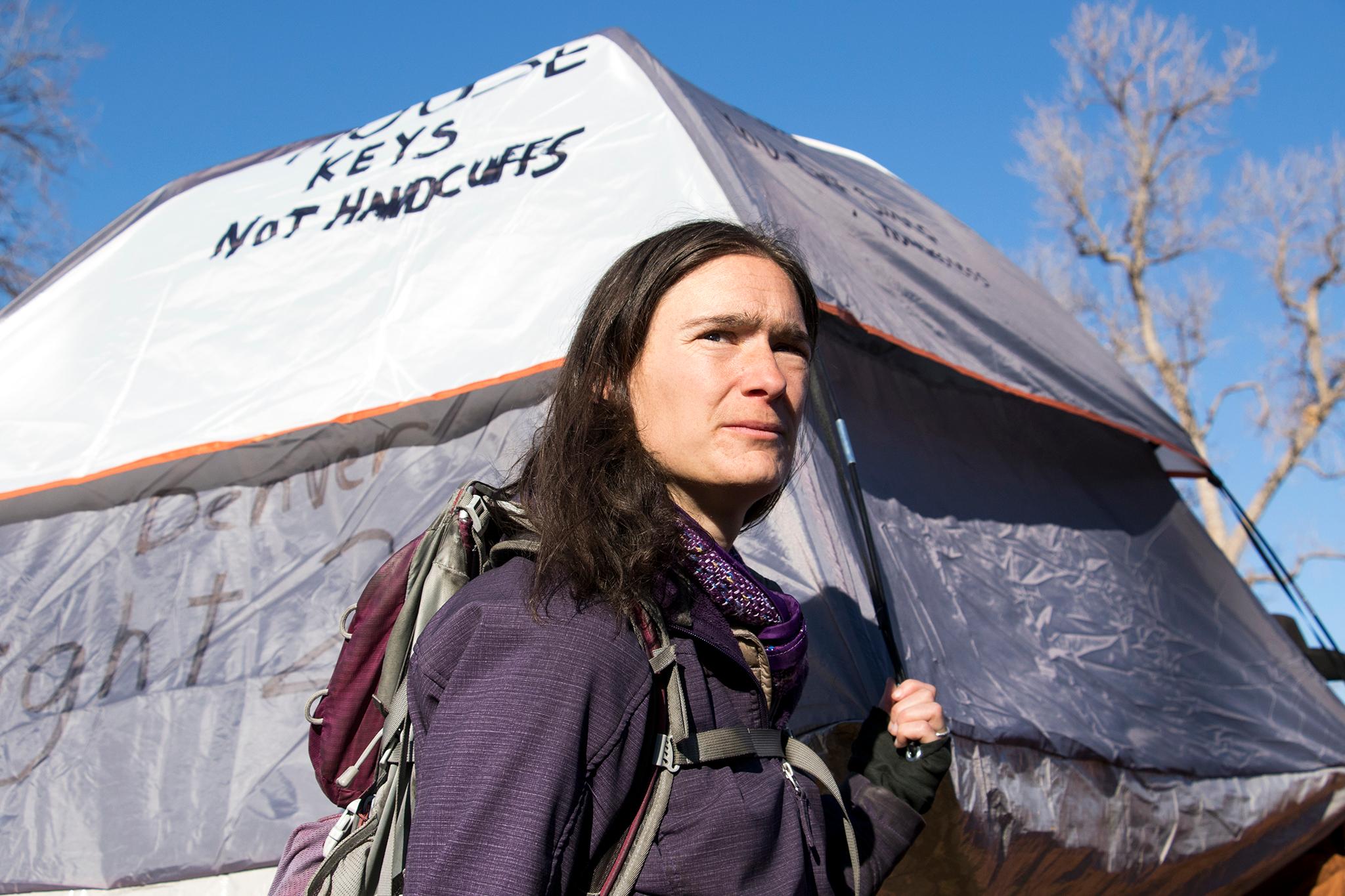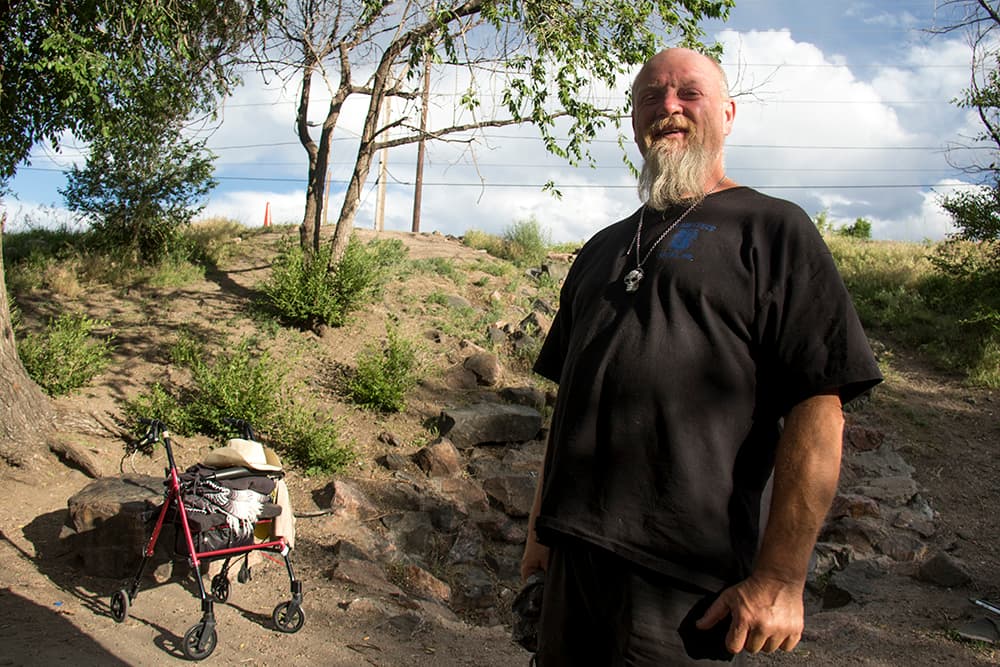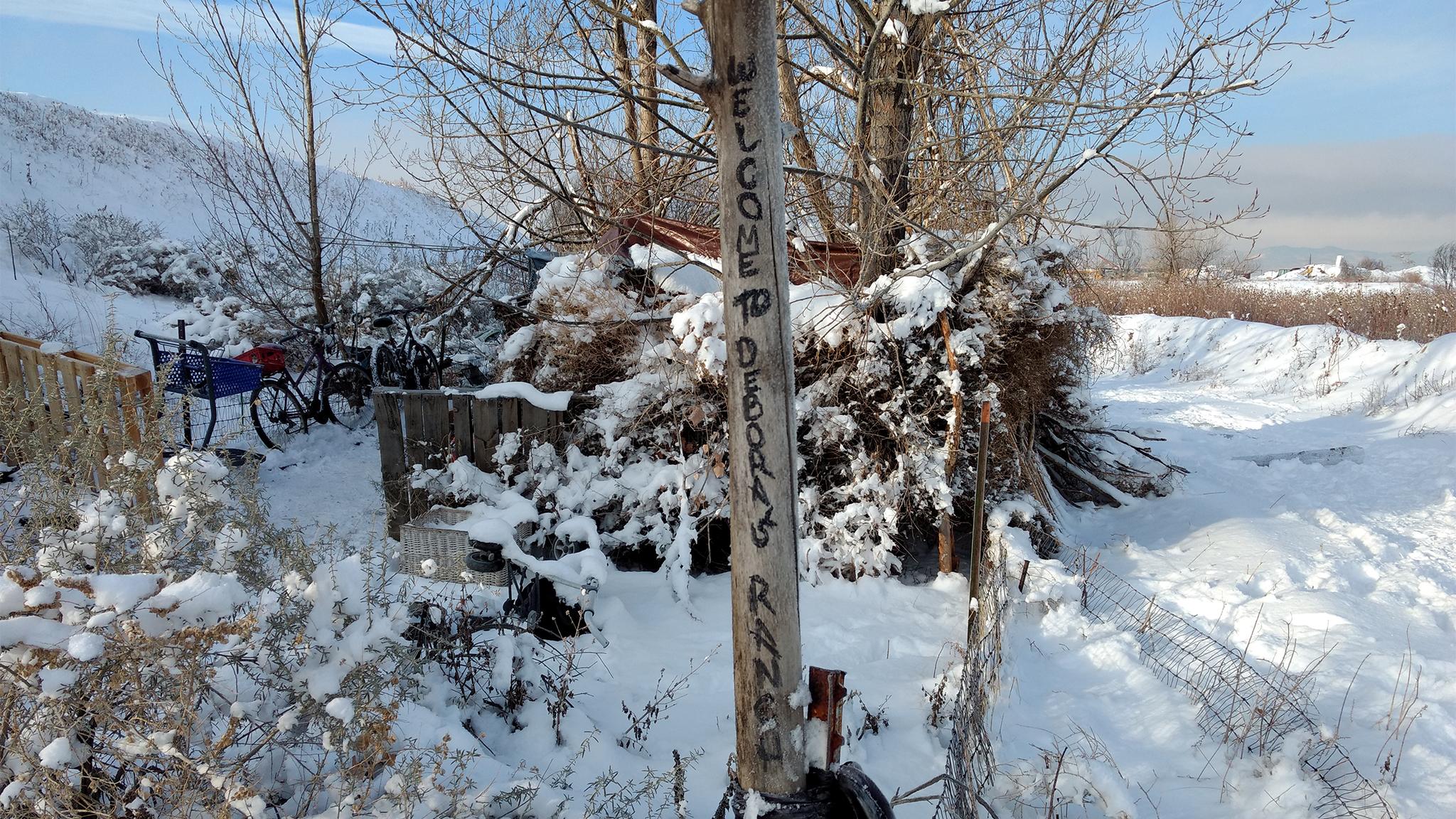Denver voters this spring will consider an initiative that backers say is matter of protecting the rights of people experiencing homelessness. Opponents argue the proposal threatens to create disorder and uncertainty in the city.
The advocacy group Denver Homeless Out Loud led the petition drive to get the Denver Right to Survive initiative on the May 7 ballot, delivering the necessary signatures last fall when most political attention was focused on the midterms. Business and political figures have started to raise voices -- and funds -- to counter a proposal that has the city attorney's office worried.
Terese Howard of Denver Homeless Out Loud said that in addition to overturning a City Council measure adopted in 2012 that bans people from sheltering themselves in public, the initiative targets the city's ordinance on sitting and lying in public. The proposal also calls for people in public places to be able to eat and share food where food is not prohibited; to shelter in legally parked motor vehicles; and to be assured that their privacy and property will not be interfered with. It would be illegal "for an employee or agent of any government agency, corporation, business, or other entity to harass, terrorize, threaten, or intimidate" anyone exercising the rights spelled out in the proposed ordinance.
Roger Sherman, campaign manager for Together Denver, the group opposing the initiative, told an audience of commercial property owners and managers recently that the proposal is so "broad, vague and unprecedented" that it raised questions that likely would have to be settled in court. Sherman wondered aloud about what would happen if a tent or sleeping bag was found alone in a public plaza next to a building owned by someone in his audience. He was speaking to the metro Denver chapter of the Building Owners and Managers Association.
"Can you have your maintenance people even just store it? Remove it? Is it really abandoned? Are they (the owners) just away from their established shelter?" Sherman said over a lunch of chicken breast and cheesecake at a south Denver event center on the edge of a golf course.
Channing Gibson, a commercial property management executive and president of metro Denver BOMA, said, "We don't want to be caught like we did with green roofs. Let's make sure this gets shot down."

Sherman's other talking points were similar to a document the city attorney's office has drawn up that says Right to Survive could undermine regulations covering food safety, trespassing on public property, overnight camping in parks and event management in spaces like Civic Center.
Howard, speaking in Denver Homeless Out Loud's Five Points office as colleagues organized sleeping bags to distribute to the needy ahead of an expected cold front, said nothing in Right to Survive would affect the city's ability to ensure donated food is safe. But it would, she said, prohibit charging permitting fees to philanthropists who want to serve meals on a large scale. Howard said trespassing rules and park curfews also would not be affected. Events that are public would also be open to people living in homelessness, she said.
The proposal "doesn't change the areas that people can be in," she said. "The initiative says that when you are in these spaces, you can ... rest in these places. Protect yourself from the elements. Sit. Lie down."
"It's not where you can be. It's what you can do while you're there. And right now the law says you can't cover yourself with a blanket. That's wrong. It's immoral. It's costly. It's unconstitutional. This initiative is trying to stop that."

The city attorney's office also is concerned that because the proposal does not define what it means to "harass" someone sheltering in public, police officers, social workers and others might be hesitant to try to help people experiencing homelessness for fear their actions would be misunderstood. Howard said harass is well understood as a legal term and that she could not imagine a person experiencing homelessness suing an outreach worker. Allowing people experiencing homelessness to establish camps would make it easier for service providers to reach them regularly, she said.
Marley Bordovsky, director of the city attorney's prosecutions section, said it was difficult to predict the consequences of the proposal, in part because no other city presents a model.
"There's nothing like this in any other jurisdiction," she said. "It would be the first of its kind that's this sweeping."
At the BOMA lunch, Sherman also told his audience of about 150 that Denver Homeless Out Loud was associated with Occupy Denver, saying that "kind of gives you a frame about where these folks are coming from."
Sherman comes from the prominent public affairs firm CRL Associates, where he is managing partner. Other members of Together Denver include Mike Zoellner, managing director of the property developer ZF Capital. Zoellner chairs Together Denver's finance committee, which includes Bruce C. O'Donnell, president of STARBOARD Realty. Alvina Vasquez, the group's communications director, was political director for Jared Polis during his successful campaign for governor. Together Denver policy director Cody Belzley has worked on health and early childhood issues, including for Bill Ritter when he was governor and for the Colorado Children's Campaign.
"Alvina and I and a lot of people involved in this have dedicated our careers to trying to support progressive policies," Belzley said in an interview.
She said Together Denver aspired to be a broad coalition that included homelessness service providers, neighborhood associations, businesses and others concerned about Denver's future. But she said she did not yet have a list of supporters to release. Together Denver hoped to reach out to people experiencing homelessness through services providers, Belzley said.
Denver Homeless Out Loud was founded and is run by people who have experienced or are experiencing homelessness and regularly surveys those on the streets for feedback.
Together Denver commended the proponents of Right to Survive for "bringing light to the issue of homelessness in Denver," Belzley said. She said Denver has taken steps to address the problem, citing the city's affordable housing fund and voters' approval last year of Caring 4 Denver, which imposes a sales tax of 25 cents on every $100 purchase to raise funds mental health services, reducing homelessness and other programs.
"We need the right, compassionate solution," Vasquez added. "I don't think ... saying everybody can sleep outside whenever they want is the solution."
Howard of Denver Homeless Out Loud said the solution to homelessness was more housing, something people connected with Together Denver also say. Denver Homeless Out Loud also advocates for more housing, but sees the camping ban as addressing another issue.
"We don't have housing right now. We're not going to have housing tomorrow. The way things are going, we're not going to have housing for the foreseeable future," Howard said. "We absolutely are going to have people living on the streets for the foreseeable future. As that's the reality, we also must protect people's basic rights on the streets."
Belzley said Together Denver has not taken a position on the camping ban. Proponents of the ban have said it was in part a response to public health concerns raised by people experiencing homelessness congregating in areas like Ballpark and Civic Center. Some credit the ban with pushing the city to ensure affordable housing was built and creating opportunities for police officers and others to encourage people to seek shelter and other support. Issuing tickets or arresting people for violating the ban is a last resort, city officials have said.
Howard said a 2012 Homeless Out Loud Survey of 512 people living on the streets found that just 4 percent of those contacted by police under the camping ban were connected to an outreach worker.

Ruben Cordova sat near a Broadway corner against a sun-warmed brick wall, using a moist towelette he said an outreach worker had given him to clean his hands as best he could before heading out in search of something to eat. Nearby was his shopping cart piled with blankets, sleeping bags and a miscellany of bottles, thermoses and bags. He said in the year he has been living on the streets of Denver, police have asked him to move along three or four times.
"They'll ask me nicely: 'You gotta go now.'"
They always tell him it's because a business owner has complained, he said.
Cordova, who avoids shelters because he finds them confining, said he had heard the camping ban might be overturned, but was unclear of the details.
"If you're out here, you don't have a choice," he said. "It should be alright. You're not hurting anybody."














